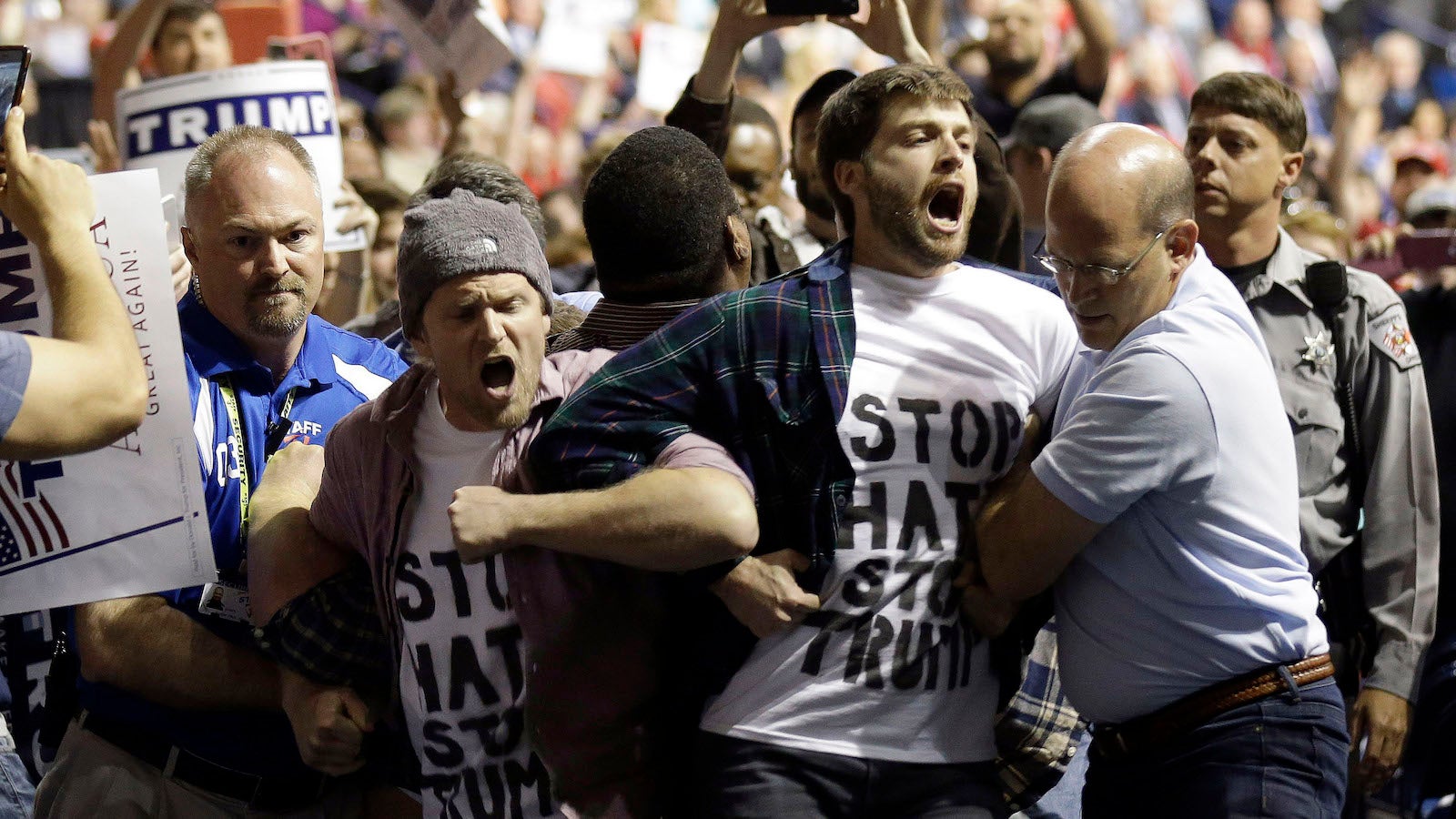Even “trolls” have a right to speak their mind, a US university president points out
Milo Yiannopoulos’s “Dangerous Faggot Tour” isn’t going well. Or it is—depending who you ask.


Milo Yiannopoulos’s “Dangerous Faggot Tour” isn’t going well. Or it is—depending who you ask.
Yiannopoulos, a Breitbart editor, alt-right leader, and apparent glutton for controversy, has spent the last year giving intentionally incendiary talks at US universities about race and gender. Since Donald Trump’s presidential win, his talks—and his presence on college campuses to begin with—have been protested with newfound intensity.
A man was shot in the crowd at Yiannopoulos’s speech at the University of Washington last week. Students at the University of Colorado braved blistering cold to riot against him last night (Jan 26).
But there’s at least one major voice in academia now speaking up for him. Chancellor Nicholas Dirks, head of the University of California-Berkeley, wrote a note to the school yesterday defending Yiannopoulos’s Feb. 1 appearance on campus, which some students and faculty have called on him to cancel.
He begins:
Mr. Yiannopoulos is not the first of his ilk to speak at Berkeley and he will not be the last. In our view, Mr. Yiannopoulos is a troll and provocateur who uses odious behavior in part to “entertain,” but also to deflect any serious engagement with ideas.
But Dirks goes on to cite a number of reasons he will not ban Yiannopoulos from the school, including:
- the US constitution’s protection of free expression, which Berkeley—with its protest culture and long history of radicalism—has upheld in the past;
- the school’s values of tolerance and inclusion, rather than outright rejection;
- Berkeley’s reputation as the home of the Free Speech Movement;
- the “paramount importance” of defending free expression at a moment in the country’s history when it seems to be increasingly rejected by both liberals and conservatives.
American colleges, over the last two years, have been embroiled in intellectual debates about whether campus should tolerate offense or protect their students from it; terms like “safe spaces,” “microaggressions,” and “trigger warnings” have been bandied about, as schools weigh how to respond to provocative or racist remarks.
Dirk’s points are salient. University presidents who’ve rejected controversial speakers might want to take a cue.